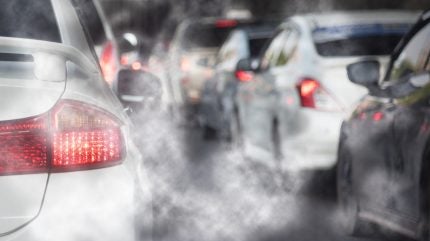
European automakers are calling for a re-evaluation of the European Union’s (EU) stringent climate regulations, asserting that the current trajectory towards banning combustion engines on new vehicles for sale (including a 100% reduction for cars by 2035) is ‘unfeasible’.
This comes as the industry grapples with the dual challenges posed by rising competition from China in the electric vehicle (EV) market and the looming threat of tariffs from the US.

Discover B2B Marketing That Performs
Combine business intelligence and editorial excellence to reach engaged professionals across 36 leading media platforms.
In anticipation of a meeting with European Commission president Ursula von der Leyen on 12 September, industry leaders have expressed concerns about the future of Europe’s automotive sector. The meeting aims to address the sector’s direction amidst these growing pressures.
Mercedes-Benz CEO and European Automobile Manufacturers’ Association (ACEA) president Ola Kaellenius, along with European Association of Automotive Suppliers (CLEPA) president and Schaeffler powertrain and chassis CEO Matthias Zink, conveyed their commitment to the EU’s 2050 net-zero target in a letter to von der Leyen.
They highlighted the industry’s launch of numerous EV models and a collective investment exceeding €250bn ($290.4bn) towards eco-friendly initiatives by 2030.
However, the executives pointed out significant challenges, including a heavy reliance on Asian battery production, inadequate charging infrastructure, higher production costs, and the impact of US tariffs.
They said in a letter: “Europe’s transformation plan for the auto industry must move beyond idealism to acknowledge current industrial and geopolitical realities.
“Meeting the rigid car and van CO2 targets for 2030 and 2035 is, in today’s world, simply no longer feasible.”
They wrote that the transition to greener technologies cannot be driven solely by legal mandates and penalties.
The letter emphasised the need for a revision of the CO2 standards for cars and vans, advocating for a more flexible, industrially informed, and market-oriented approach to be enshrined in law.
The letter stated: “EVs will lead the charge, but there must also be space for (plug-in) hybrids, range extenders, highly efficient internalcombustion-engine (ICE) vehicles, hydrogen and decarbonised fuels.”
Additionally, the leaders called for a review of CO2 regulation for heavy-duty trucks and buses.
In a proposal made in March 2025, the European Commission suggested granting the auto industry increased leeway in meeting CO2 targets, extending the period for carmakers to achieve new CO2 fleet averages for cars and vans from one year to three, potentially mitigating the risk of fines for non-compliance.






